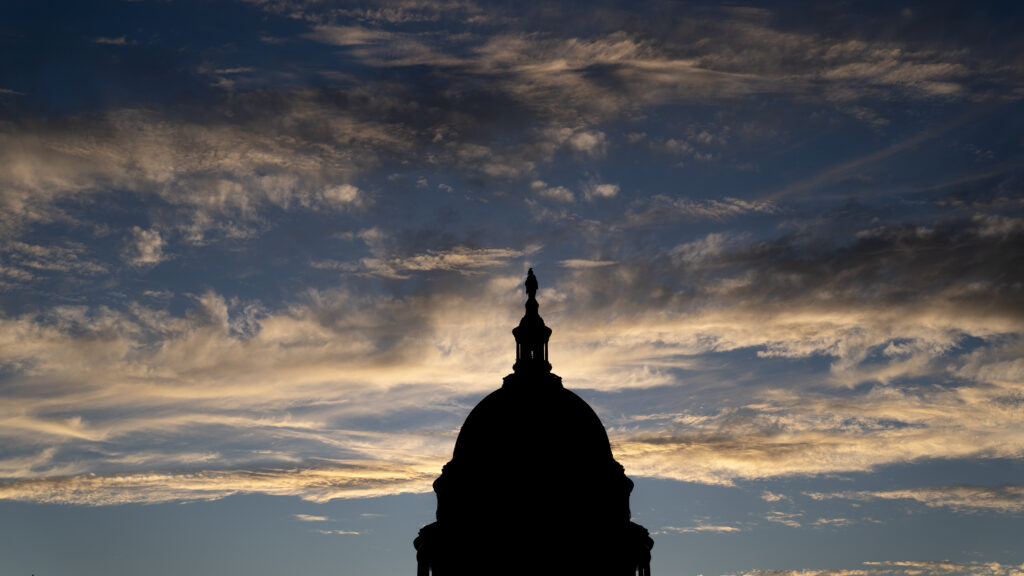You’re reading the web edition of D.C. Diagnosis, STAT’s twice-weekly newsletter about the politics and policy of health and medicine. Sign up here to receive it in your inbox on Tuesdays and Thursdays.
Bon apétit, offsets are served
Whenever lawmakers get around to actually making decisions about funding the government, leaders try to balance measures that save the government money with those that cost the government money.
advertisement
The major health committees have cleared health care policies they’re hoping can hitch a ride on a government funding bill — and measures that save money are always more likely to pass. Thus, I give you: The Unofficial STAT Offset Menu, courtesy of the Congressional Budget Office (can you tell I’ve been catching up on The Bear?). All savings are over a decade, and are mostly based on estimates from the Energy & Commerce and Finance Committees. Further options could come, as Senate HELP and House Ways & Means have scores in limbo, and E&C has a subcommittee markup this week that could eventually lead to new bills in the mix.
- Piggy bank funds: Sen. Bernie Sanders suggested pulling $980 million from the Prevention and Public Health Fund, and the Senate Finance Committee proposed dipping into $5.8 billion from the Medicare Improvement Fund
- Site-neutral pay for administering medicines: saves $3.7 billion
- Ensuring accurate payment to pharmacies in Medicaid: saves $2 billion
- Hospital contracting reforms: These aren’t scored yet. However, predecessor policies from a HELP surprise billing package saved around $1 billion, as they increased revenue to the government
- Extending changes to hospice payments: saves $927 million
- Increasing transparency in generic drug applications: saves $871 million
- Regulating PBM contracts (Finance’s version): saves $719 million
- Phasing in Medicare lab pay changes: saves $589 million
- Requiring separate unique site identifiers: saves $403 million
- Preventing spread pricing in Medicaid: saves $306 million
- Midyear formulary changes for biosimilars: saves $222 million
Shooting for a ladder
We don’t know whether the laddered CR that House Speaker Mike Johnson (R-La.) proposed will become law this week, or whether we are headed for a shutdown. But if it does manage to squeak through, it could dramatically change the dynamics of when major health policy changes could pass.
Instead of having one deadline for lobbyists to focus their efforts, the House bill is split into two phases with two different deadlines: Jan. 19 and Feb. 2. Both will be important for health policy.
advertisement
On Jan. 19, Medicaid disproportionate-share hospital pay cuts would be set to go into effect. A longer-term effort to hold off those cuts would likely cost billions, which make some of the PBM reforms lawmakers are eyeing more attractive, since they save money (see above for details). The actual HHS appropriations bill would expire on Feb. 2.
Also of note: the House spending bill would temporarily exempt companies that work with the government on biodefense and pandemic products from antitrust law in narrowly defined circumstances. (That’s a part of the pandemic preparedness bill PAHPA, my colleague John Wilkerson reports.) The stopgap funding bill would also reauthorize the same three pandemic preparedness programs Congress extended at the end of September. Those programs include the authorities to appoint national disaster medical system personnel, to temporarily reassign state and local personnel during public health emergencies, and to maintain three advisory committees.
UnitedHealth uses algorithms to ration expensive care in MA
We’ve got yet another blockbuster story on how algorithms are being misused from my colleagues Bob Herman and Casey Ross. This time, they’re examining UnitedHealth’s practice of denying rehab for patients based on a computer algorithm’s calculations. And the ideology behind the strategy stemmed from a former Obama-era health staffer who will be familiar to many of you.
The goal was to cut costs associated with nursing home care for frail residents in Medicare Advantage plans, according to internal documents they reviewed. UnitedHealth, through its algorithm, set a target for 2023 to keep rehab stays of patients in MA plans within 1% of the days projected by the algorithm, instead of individualizing patients’ needs. (The company said physician reviewers had the final call.)
CMS told STAT the agency “is looking into these allegations and may take necessary enforcement or compliance actions.” Medicare could issue fines or halt Medicare Advantage insurers from enrolling more people, though that rarely happens. Read more.
Keep these tabs open
A couple of papers caught my eye this week that are helpful for understanding the policy frontier on the Hill. My inbox is always open for interesting policy ideas!
- Sens. Raphael Warnock (D-Ga.) and John Kennedy (R-La.) are out with a new analysis highlighting the regions of the country where there are high rates of insulin usage, and also high uninsured rates. The worst states for access are Mississippi, Oklahoma, Alabama, Nevada, Arizona, and Texas. It’s a pitch for their insulin copay cap legislation that would extend to uninsured patients, unlike alternative bills. However, it’s worth noting that the senators still won’t provide a single detail on how they intend to offset more than $1.2 billion in estimated costs for the proposal, and it’s November.
- Third Way, a center-left policy organization, is putting out its latest installments in its series of white papers on “Fixing America’s Broken Hospitals.” Centrist Democrats seem to be a bit short on big ideas on hospital reform, as I reported a couple weeks back. The latest reports mull how to make sure 340B discounts benefit patients, and how to sustainably fund and support safety-net hospitals.
What we’re reading
- How CDC’s new director is trying to regain trust shattered by Covid, Washington Post
- Opinion: Congress must reauthorize the National Advisory Committee for Seniors and Disasters, STAT
- ‘An extreme response’: Republicans move to kill Trump’s HIV-fighting program, Politico
- Michigan bill that would pare back pharma liability shield law moves closer to enactment, STAT

